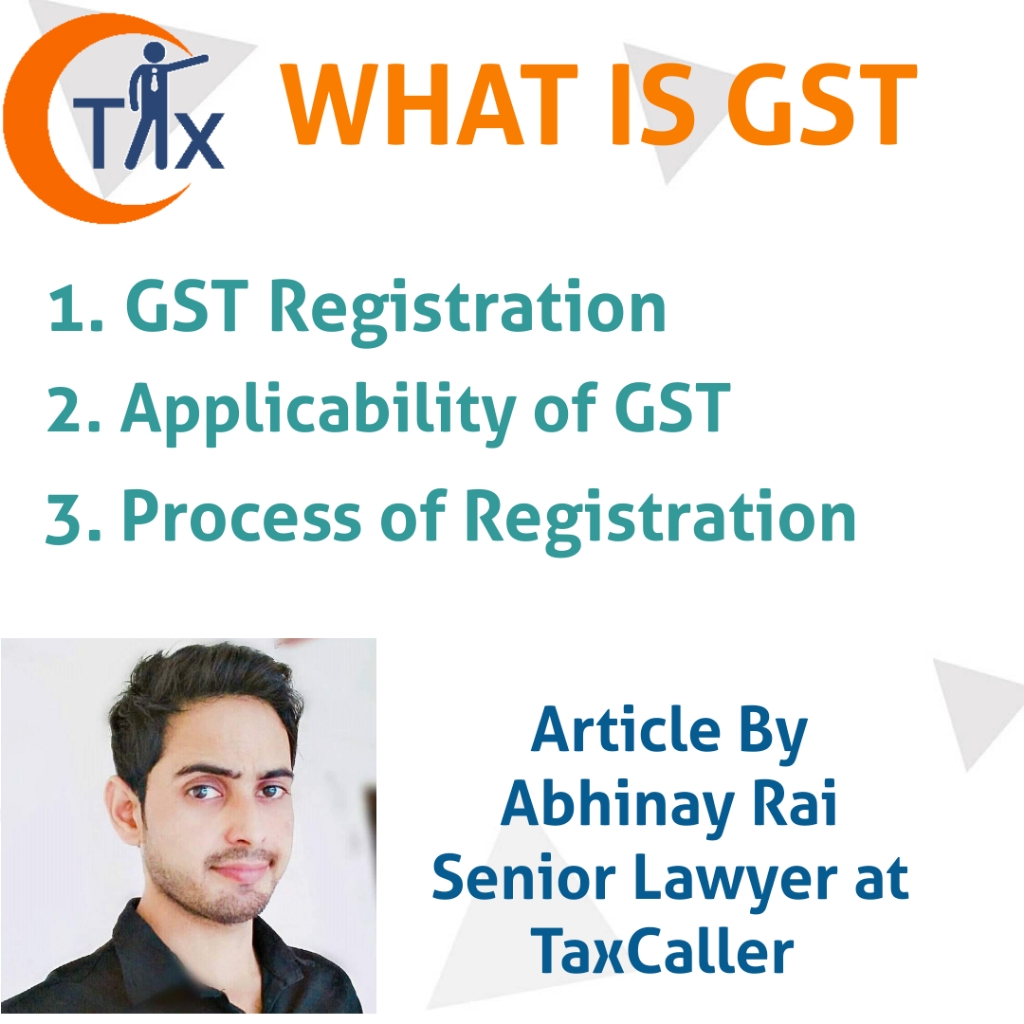
What is GST "Goods and Services Tax"
The goods and services tax (GST) is a value added tax that applies to most goods and services sold for internal consumption. The Goods and Services Tax Law was approved in Parliament on March 29, 2017. The Law went into effect on July 1, 2017; The Goods and Services Tax Law in India is a comprehensive, multi-stage, destination-based tax that is applied to each value added.
In simple words, the goods and services tax (GST) is an indirect tax that is applied to the supply of goods and services. This GST law has replaced many of the indirect tax laws that previously existed in India. The GST is paid by consumers, but the companies that sell the goods and services refer it to the government. In effect, goods and service tax generate revenue for the government.
.
Understanding the Goods and Services Tax (GST)
The GST is an indirect sales tax that is applied to the cost of certain goods and services.. The business adds the GST to the product price, and a customer who purchases the product pays the sale price plus the GST. The part of the GST is collected by the company or the seller and sent to the government.
How Goods and Services Tax System Working
Most countries with a GST have a single unified GST system, which means that a single tax rate is applied across the country. A country with a unified GST platform merges central taxes (eg, sales tax, consumption tax, and service tax) with state-level taxes (eg, entertainment tax, entry tax) , transfer tax, sin tax and luxury tax) and collects them as a single tax. These countries tax almost everything at a single rate.
Double tax structures on goods and services (GST)
Only Brazil and Canada , have a dual GST structure. Compared to a unified GST economy where the federal government collects taxes and then distributes them to the states, in a dual system, the federal GST is applied in addition to the state sales tax. In Canada, for example, the federal government applies a 5% tax and some provinces / states also impose a provincial state tax (PST), which ranges from 7% to 10%. In this case, the consumer receipt will clearly have the GST and PST rate applied to their purchase value.
GST Registration?
In the GST Regime, companies whose turnover exceeds Rs. 40 lakhs * (Rs 10 lakhs for NE and mountain states) are required to register as a normal taxable person. This registration process is called GST registration.
For certain companies, registration under GST is mandatory. If the organization conducts business without registering under GST, it will be a crime under GST and heavy penalties will apply.
GST registration generally takes 2-7 business days. We will help you sign up for GST in 3 easy steps.
* CBIC has reported the increase in threshold rotation from Rs 20 lakhs to Rs 40 lakhs. The notification will take effect on April 1, 2019.
Who Required for GST Registration
1. People registered under the Pre-GST law (i.e. excise, VAT, service tax, etc.)
2. Companies with a turnover above the limit of Rs. 40 Lakhs * (Rs.10 Lakhs for the Northeast States, J&K, Himachal Pradesh and Uttarakhand)
3. Occasional taxable person / non-resident taxable person
4. Inbound service provider and distributor agents
5. Taxpayers under the reverse charge mechanism
6. Person supplying through the e-commerce aggregator
7. Each e-commerce aggregator
8. Person who provides online information and access to the database or recovery services from a place outside India to a person in India, who is not a registered taxable person
* CBIC has reported the increase in threshold rotation from Rs 20 lakhs to Rs 40 lakhs. The notification will take effect on April 1, 2019.
Documents Required for GST Registration
1. Applicant's PAN
2. Aadhaar card
3. Proof of company registration or certificate of incorporation
4. Proof of identity and address of promoters / director with photographs
5. Proof of address of place of business
6. Bank account statement / canceled check
7. Digital signature
8. Board Resolution for Authorized Signatory / Letter of Authorization
What is the GST registration process?
The Goods and Services Tax (GST) registration services at TaxCaller our experts help you register your GST for your business and obtain your GSTIN.
The TaxCaller GST experts will guide you in the applicability and compliance of GST for your business and will make your business register under GST.
Penalty for not registering under GST
An offender who does not pay taxes or makes short payments (genuine errors) has to pay a fine of 10% of the amount of tax owed subject to a minimum of Rs. 10,000.
The fine will be 100% of the amount of the tax owed when the criminal has deliberately evaded the payment of taxes.
Thanks for reading Please drop your comment regarding article If any
Author Bio

Anupam Rai is Director of Indian Fabrication Company Aditya Enterprises. having Experience More than 10+ years in the field of Fabrication and Engineering. Rai was born on 21 june 1993 in the gopalganj city, India. He had completed his college from deendayal upadhyay university gorakhpur in the year of 2012. LLB from DDU university.

Leave a Comment
Your email address will not be published. Required fields are marked *